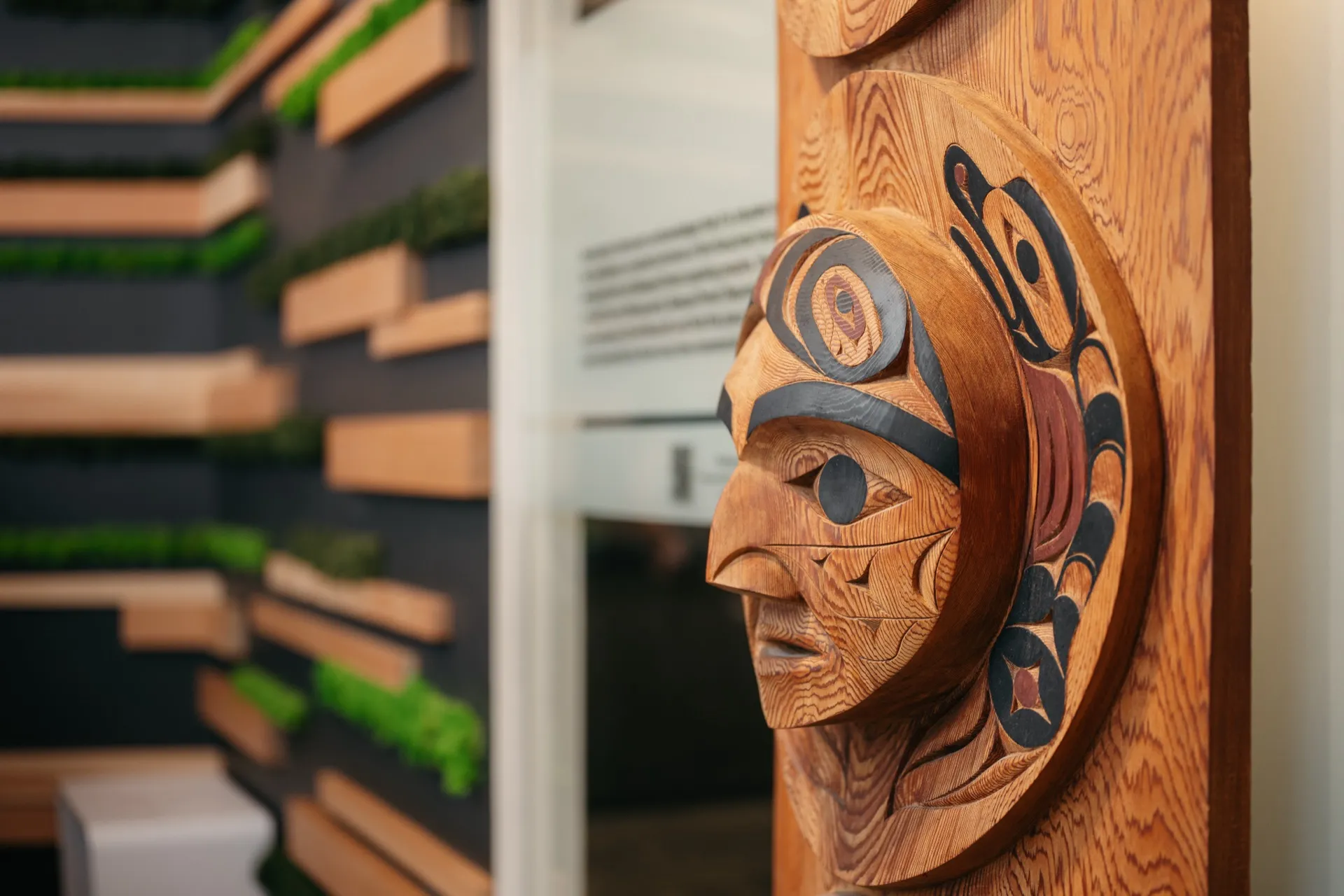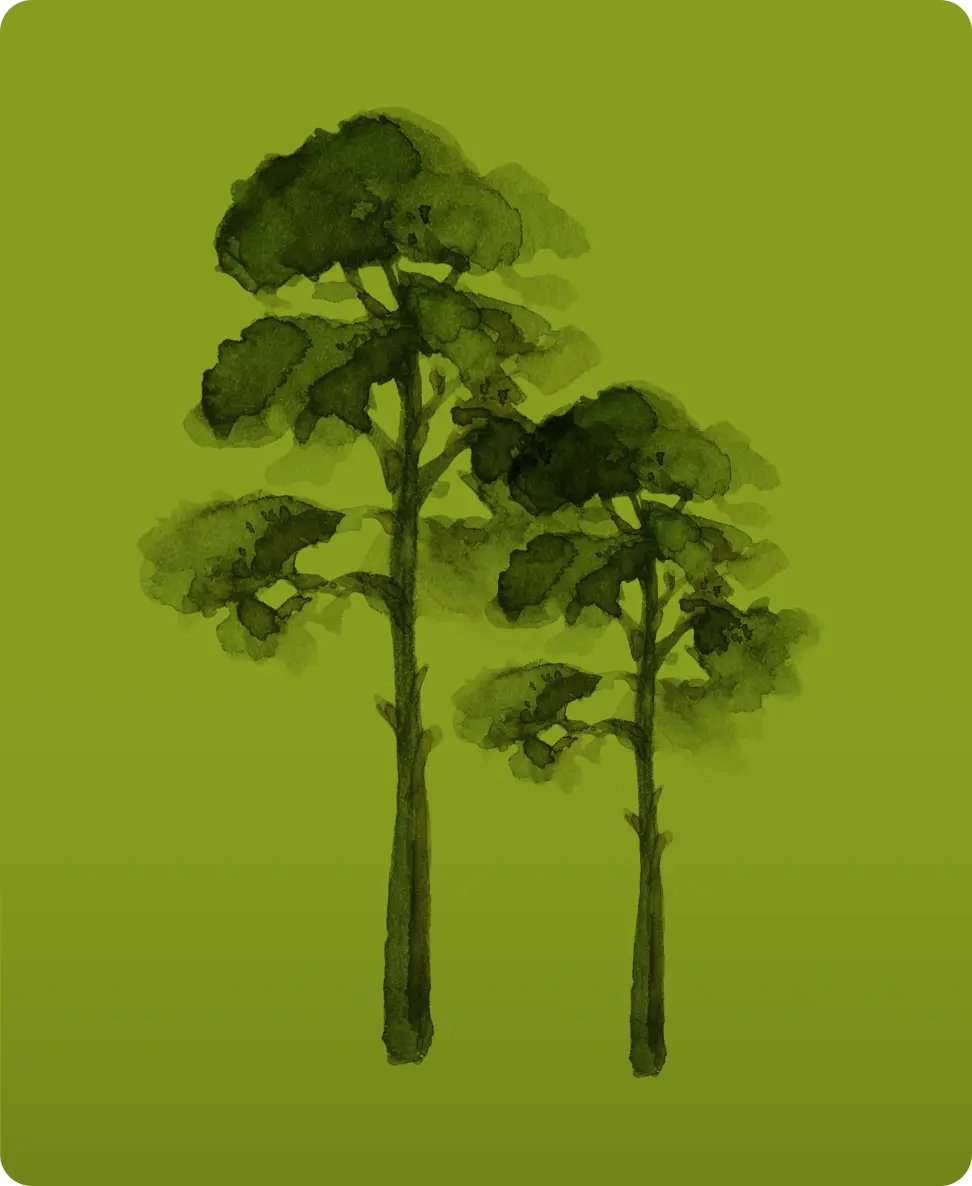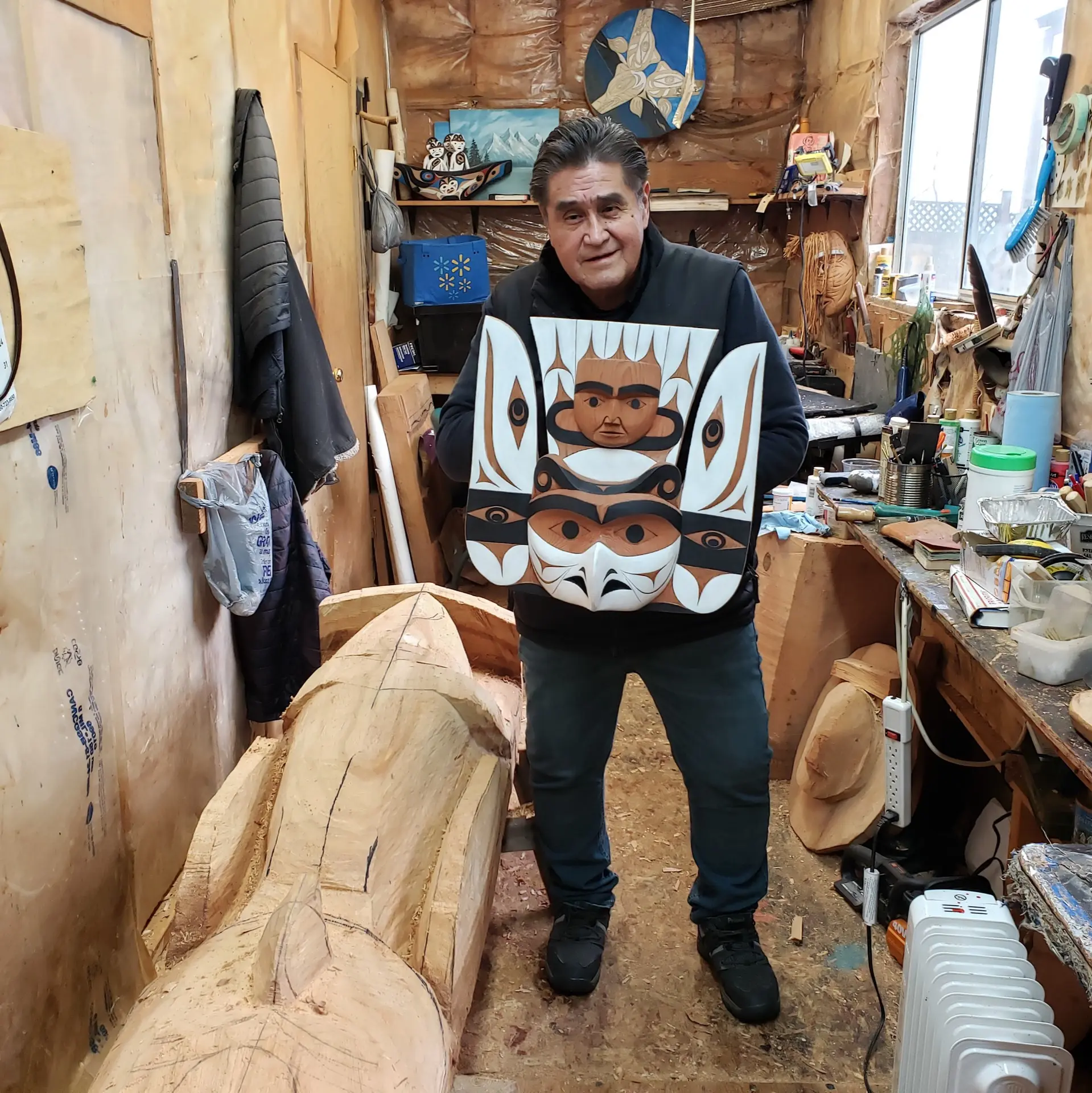
Totempole
Hesquiaht (Nuu-Chah-Nulth) totem pole

The four seasons — The story that inspired the carving
The Four Seasons totem pole was carved by Tim Paul, a Hesquiaht, Nuu-chah-nulth master carver from Esperanza Inlet on Vancouver Island.
“The pole is named for the four seasons, brought in by the elder sibling, the grandparent, The totem pole is our grandparent, it deals with our cultural teaching and family history. The elder sibling is bringing in the new season. On the pole you see each season represented; winter, spring, summer, and fall. At the winter equinox we prepare for a whole new year and a new harvesting season,” shares Tim.
An experienced
master carver
Tim’s vast knowledge of tradition and history has influenced his work as an artist, environmentalist, and teacher.


Western red cedar
was used to carve the pole
Tim has represented the Nuu-chah-nulth, Hesquiaht First Nation in New Zealand, England, France, Sweden, and the USA, where he has given lectures and carved masks, totem poles, and canoes. He’s earned accolades including a Royal Canadian Academy of Arts Award and a British Columbia achievement award.
Tim is a former First Carver at the Royal British Columbia Museum, where he managed commissions for totem poles at international sites in England, Auckland, and Stanley Park, Vancouver. The Four Seasons carvings were assisted by Tseshaht Gordon Dick, owner and operator of the Ahtsiik gallery, and Kwakwaka’wakw Bob Cranmer of Kingcome Inlet.
Spirit of Thunderbird Mask by Tim Paul, Nuu-chah-nulth. Photo: Spirits of the West Coast Art Gallery.

Spirit of Thunderbird Mask by Tim Paul, Nuu-chah-nulth. Photo: Spirits of the West Coast Art Gallery.